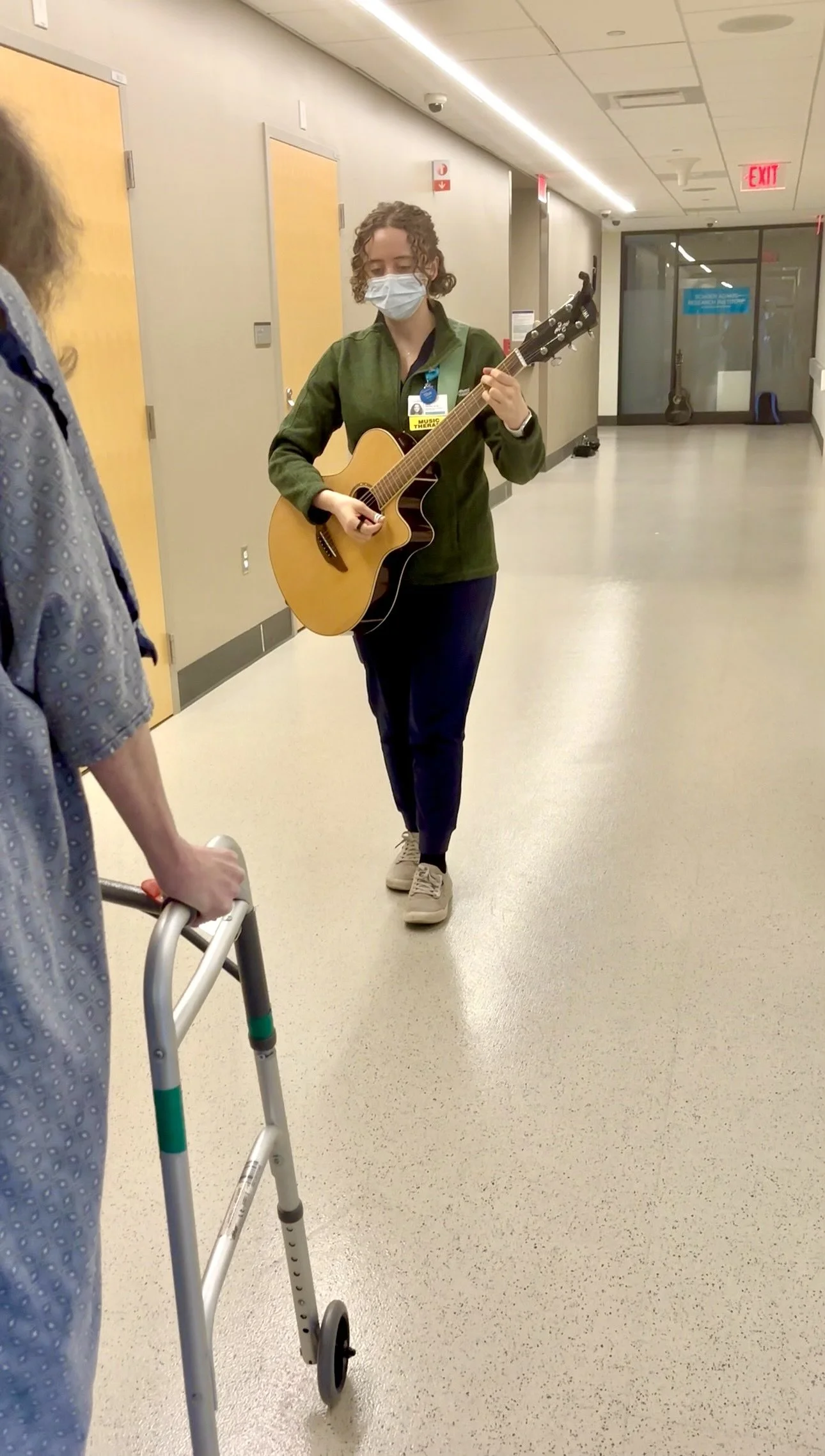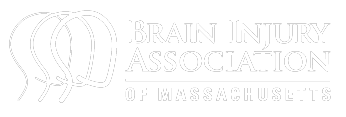MedRhythms provides NMT Therapy services across a variety of settings, including inpatient rehabilitation hospitals, outpatient locations, nursing and rehabilitation centers, community centers, as well as through telehealth and in-home visits.
Our Approach
At MedRhythms, we empower diverse populations to reclaim their lives through the transformative power of Neurologic Music Therapy (NMT™). This research-based treatment system uses music-based interventions to enhance brain function for individuals with various neurological conditions, such as stroke, traumatic brain injury, Parkinson’s disease, and multiple sclerosis.
Recognizing that each person’s journey is unique, we customize our treatment plans to meet individual needs and work collaboratively with other healthcare professionals to ensure comprehensive care. Our team closely collaborates with patients and their loved ones to create personalized strategies aimed at restoring function and improving quality of life.
MedRhythms is committed to supporting everyone on their journey to recovery and wellbeing, ensuring tailored care for all, regardless of age or condition.
How can NMT help?
Neurologic Music Therapy (NMT™) provides functional benefits across a wide range of populations, as it focuses on enhancing functional behavior outside of music treatment. This approach recognizes that improvements in motor skills, communication, and cognitive function can lead to significant gains in daily living activities.
Enhances Communication Skills: Structured singing interventions are used to facilitate neural pathways associated with speech and language production.
Improves Motor Skills and Walking: Music and rhythm-based interventions target the rehabilitation of both fine and gross motor skills by integrating music into movement therapies.
Boosts Cognitive Function: The application of music in therapy has been shown to enhance various cognitive functions, including attention, memory, and executive functioning.
Who Can Benefit?
Populations include but are not limited to the following:
Traumatic Brain Injury (TBI)
Stroke and other Acquired Brain Injuries (ABI)
Parkinson’s Disease (PD)
Multiple Sclerosis (MS)
Spinal Cord Injuries (SCI)
Alzheimer’s Disease and Other Related Dementias
Autism Spectrum Disorders (ASD)
Developmental Delay
Common Goal AreaS:
Walking and Mobility
Voice and Respiratory
Expressive and Receptive Language
Motor Speech
Attention
Visuospatial Neglect
Long and Short Term Memory
Executive Functioning
Sensory Integration and Regulation
“Before my injury, singing was the highlight of my life. After my injury, my voice completely changed. I needed to relearn how to use my voice. For me, that has been one of the highlights of NMT - learning about the vocal cords, breathing, and creating my voice 2.0. NMT helped me to find my love of music again. When I was in my coma, I couldn’t handle therapy. NMT was recommended to me because of my love for music. Music was the only thing that got me through all my therapies. I would recommend NMT to anyone with any injury, who has a love for music.”
Traumatic and Other Acquired Brain Injury
Brain Injury
“I see improvements in all aspects of gait including coordination, balance, gait speed, cadence, stride length, and muscle activation. Additionally, seeing how much patients enjoy participating in neurologic music therapy alone makes it worthwhile.”
parkinson’s disease (PD) and Multiple Sclerosis (MS)
At MedRhythms, we have extensive experience supporting individuals diagnosed with Parkinson’s Disease (PD) and Multiple Sclerosis (MS). Through NMT, we focus on maintaining daily functioning and enhancing quality of life amidst the challenges posed by these neurodegenerative diseases. Recognizing the importance of independence, we collaborate with you or your loved one to develop a customized treatment plan aimed at slowing disease progression. Our approach emphasizes communication and movement, allowing us to engage meaningfully and thrive in our environments.
Speech & singing share neural networks inside of our brain, and use the same vocal structures to produce sound. Singing directly stimulates the muscles and neural networks associated with respiration, phonation, articulation, and resonance.
Auditory rhythms can stimulate motor areas in the brain to help address initiation, and to facilitate and organize motor movements
Music access and stimulates many parts of the brain bilaterally, allowing the brain to maximize neuroplasticity, or its ability to compensate for itself!
“As someone with MS I have found neurologic music therapy to be an important part of my care. It has helped me with my gait in many ways including balance, speed, and endurance. I use the techniques I have learned every day, and always look forward to my sessions! I am always learning new strategies to help improve my walking!”
alzheimer’s disease, dementia & memory care
Receiving a diagnosis of Alzheimer’s Disease or dementia is deeply overwhelming for individuals and families, as these neurodegenerative diseases challenge cognitive abilities like attention and memory; at MedRhythms, we offer customized treatment plans with tailored memory care interventions aimed at slowing disease progression and enhancing functioning.
Music provides stimulation & structure to the brain, introduces timing, grouping, and synchronization for better organization, recruits parallel brain systems and adds emotion & motivation.
NMT accesses the shared networks within the brain that process both music and nonmusical cognitive functions & utilizes these shared systems to positively affect cognitive goal areas. Studies have shown that music can help facilitate verbal learning & recall; musical memories may help access a person’s autobiographical memory, knowledge recall and ability to retain new information (Thaut, 2010).
Music processing regions in the brain correspond to brain areas that show “minimal cortical atrophy…which may explain the surprising preservation of musical memory,” in Alzheimer’s disease, (Jacobsen et.al., 2015).
developmental disabilities and AutiSM (ASD)
MedRhythms harnesses the transformative power of music to target the neurological foundations of a person with autism. Our team of NMTs crafts individualized plans tailored to each person's unique needs, utilizing rhythmic movement and engaging musical experiences to stimulate brain activity. Through this innovative approach, we aim to enhance communication skills, improve motor function, and optimize sensory processing abilities, all of which contribute to greater independence and the development of meaningful social connections.
How can NMT help?
Utilize music and its element’s to stimulate language centers in the brain
Research shows better perception in sung vs. spoken words. Sharda et al., 2014
Music interventions designed to integrate different sensory modalities focusing on auditory identification and discrimination
Music serves as a cognitive organizer to focus, contain, and engage multiple areas of the brain
other services we provide
If you or your loved one are experiencing a neurologic diagnosis not listed here, please contact us for more information.
Group Programming
Aphasia Chorus/ Parkinson’s Chorus
Movement/ Speech/ Cognition Groups
Program Implementation
MedRhythms partners with leading hospitals to develop and implement customized, effective NMT programs. We provide a seamless implementation process, ensuring your program is tailored to your specific needs and resources.
Contact us today to discuss your organization’s needs and receive a personalized program proposal.
Educational Services
In-services / Presentations
Lectures / Workshops
Clinical supervision for undergraduate and graduate music therapy students
If interested in our consultation/education services, please contact us for pricing.




























